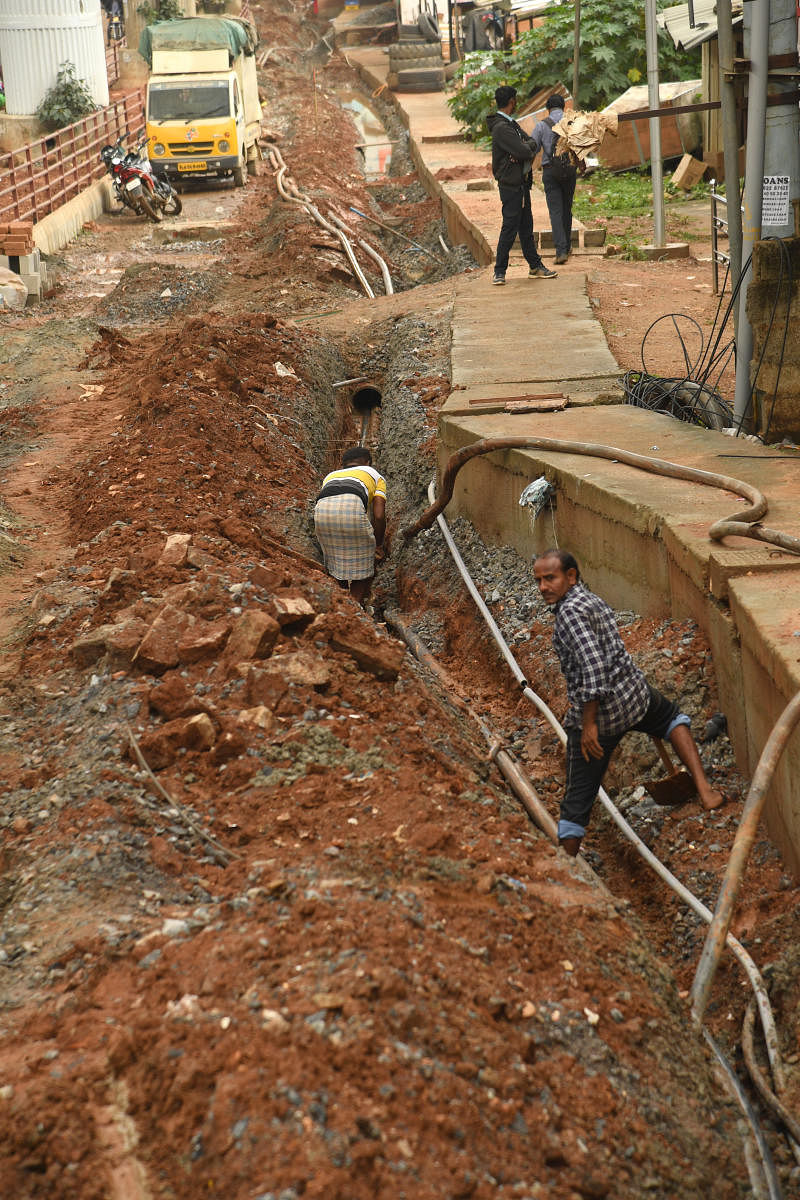There have been reams of problem cause analysis for the recent flood-related destruction in Bengaluru, covering aspects of rajakaluve encroachments, silted and sewage-filled drains, tank bed constructions, over-concretisation, corruption, incompetence, the multiplicity of agencies, no governance and more.
In essence, we are not respecting either nature’s lines (topography) or the rule of law. And, the powers that be do not have a sense of their trusteeship obligations. The imagery that comes to mind is that ‘termites are holding up the wooden floor’—it is inevitable that in the ‘business as usual’ model, our city will keep ‘crashing’ from time to time.
If we had a third tier of local city government, there would have been clear ownership and accountability. Unfortunately, we have a Constitutional birth defect which, after detailing Union and state arrangements, referred to the third tier as local bodies which essentially have become vassals at the mercy of the state.
This is a pity because, in pre-independence India, political leaders like Jawaharlal Nehru, Subhash Chandra Bose, Vallabh Bhai Patel, Rajaji and Rajendra Prasad cut their teeth in local town and city councils.
The state government has been relentlessly chipping away at the autonomy of the municipal corporation by creating parastatals at will. The 74th Constitutional Amendment through the creation of a Metropolitan Planning Committee (MPC) tried to remedy the situation for urban areas. But truth be told, it is an extremely feeble and futile attempt. The list of areas in the 12th schedule of the Indian Constitution that specifies the powers, authority and responsibilities of municipalities does not include transport or urban commons! And our woes extend way beyond just the planning—it’s the execution and regular coordination across multiple agencies that needs addressing.
Citizens want outcomes. The system is flooded (pun intended) with territorial silos designed to protect their turf at the expense of the larger collective good. Nothing in the city governance structure acknowledges the need for such a ‘command and control’ 24X7 coordination mechanism. All we are left with after every disaster is every agency passing the buck.
Amid all the problems we are facing due to multiple agencies ruling the city, there is one solution possible to just one key aspect of the problem plaguing us. This involves the bane of multiple alphabet-soup civic agencies that rule our day-to-day lives—BBMP, BWSSB, BESCOM, BDA, BMTC, BMRCL, LDA, KSPCB, etc.
Never waste a crisis
There is an adage that we should never waste a crisis. The recent flooding disaster should goad the state to set up a Bengaluru Resilience Unit (BRU) at the apex city level through legislation. Its mandate should be to work on the city’s preparedness to handle/mitigate disasters and prevent loss of lives and property through proactive action, post-disaster recovery and rehabilitation.
The BRU shall be made responsible for ensuring inter-agency coordination and accountability of all civic authorities. It will have three main roles:
1) Planning through review of current vulnerabilities and preparing master plans with a resilience focus
2) Coordination in directing and integrating the activities of various parastatal agencies, corporations and BBMP
3) Developing buildings and maintaining civic infrastructure through the respective agencies that can withstand any natural or man-made disasters.
The BRU should be vested with the power to supervise and issue directions to all agencies discharging civic functions in Bengaluru as notified by the government. There should be legal provisions to override Acts or Articles of Association of the parastatals/corporations to give BRU the exclusive power of superintendence over activities of these agencies in defined areas that impact the city’s resilience.
Every direction within the framework given by the BRU should be complied with by the agency. On failure, the BRU should have the authority, through the state government, to take necessary action to carry out the directions. The state must ensure that funding to these agencies is routed through the BRU. Life’s reality: Folks listen to those who control the purse strings!
We need to act on multiple fronts to make Bengaluru disaster-proof. The recent flooding is our ‘Surat moment’. The Gujarat city initiated action against the rich and influential violators, as a first step to fixing the plague problem. Do we have the necessary political and administrative will to bring our multiple agencies to heel and be the conductor who creates ‘music’? Or will it continue to be all ’noise’ and ‘fury’ sans results and carry on with the failed governance models of the past?
(The author is a civic evangelist and was a member of the BBMP Restructuring Committee headed by B S Patil)
